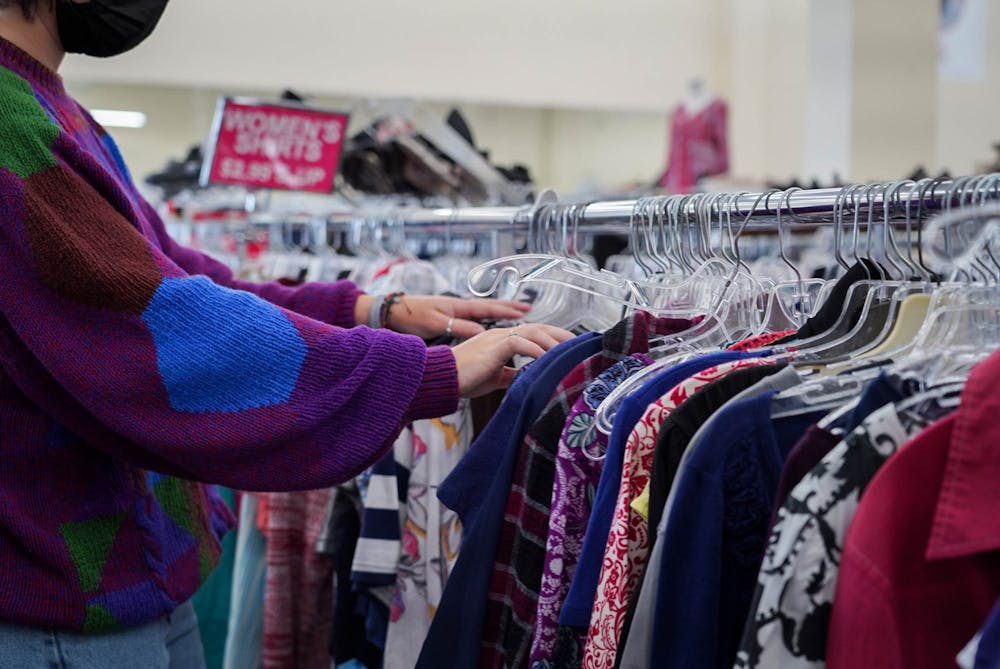On Monday, Telfar introduced its first wallet collection in 17 colors. The drop was scheduled for noon and within minutes, it sold out.
Soon after, these wallets appeared on an e-commerce site for nearly 10 times the retail price. The severe inflation highlights how resale culture disadvantages customers.
From the start, Telfar – founded by designer Telfar Clemens in New York – has adopted a “drop” model where new collections appear on their website at designated days and times. The signature “shopping bags” and other apparel, including hats, belts, shoes and clothing, are typically restocked during these sporadic drops. The brand generates excitement by announcing and promoting restocks and new collections on social media.
For customers, the anticipation often leads to disappointment. But Telfar products often sell out as soon as they are released.
On Monday, a wallet sold out in my cart while I was checking out. I had set two alarms to make sure I did not miss the release time. I wish I could say this was the first time this happened to me. The pettiness and frustration I felt (and still feel) was only made worse when I saw that the wallet I couldn’t get was listed for resale at double the original price. Telfar was selling wallets for $144 and the resale prices ranged from $200 to $1,500.
The reselling of products at such inflated prices doesn’t only impact Telfar, but has been plaguing fashion and other industries for years.
Market experts predict that the sneaker resale industry will generate $30 billion globally by 2030. Sneakers that appear on the resale market are offered at inflated prices, even more so when they are collaborations with fashion designers or limited-editions.
In 2021, a Nike executive resigned after it was revealed that her son used her personal credit card to fund his very successful sneaker resale business. While there was no report that he received insider information from his mother, the scandal ended her 25-year tenure with the company, where she had recently been promoted.
In November, Taylor Swift fans were enraged after tickets for her highly anticipated tour were listed on resale sites for tens of thousands of dollars. The chaos peaked when the justice department announced an antitrust investigation into Live Nation Entertainment, which owns Ticketmaster, where a presale of Swift’s tickets took place. The investigation was brewing before the controversy, but Ticketmaster’s system crashing during the presale impacted fans who were then left with higher prices elsewhere.



